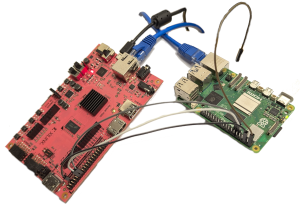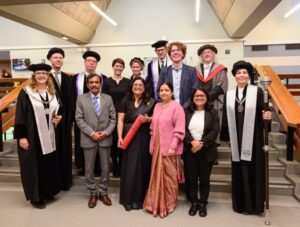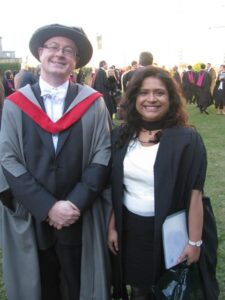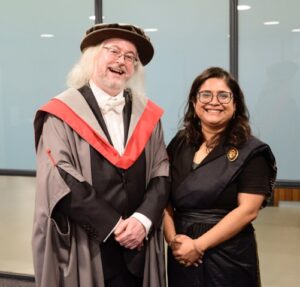Supporting ethical deliberation in the software lifecycle
Lead supervisor: Dr Dharini Balasubramaniam
Application deadline: 1 March 2025
Project description:
Software ethics covers a broad spectrum of concerns including accountability, fairness, privacy and data protection, transparency, safety, security, accessibility, digital inclusion and sustainability. Much of the current dialogue on software ethics relates to the development, deployment and use of AI-based solutions, although there are ethical concerns related to most, if not all, software application domains. The pervasive nature of software, its critical importance to the functioning of many sectors, and the opaque nature of software-supported decision making in some domains all make it vital that ethical issues are explicitly considered throughout the software lifecycle.
There is generic ethics guidance, such as the ACM / IEEE Software Engineering Code of Ethics and sets of ethical principles specifically aimed at domains such as AI, available to software engineers. Generic and specific concepts such as value-based software development and responsible AI have been proposed to encourage ethical software development. However, there is still a lack of processes, notations, tools and training available to software professionals to support systematic ethical deliberation and ethics-driven development in practice.
This project will explore and attempt to address this gap. The student will design and develop ways to explicitly capture ethical requirements, risks and mitigations as first-class concepts in software artefacts. They will implement tools that work with these specifications to analyse the compliance of software artefacts with ethical requirements, and highlight potential violations and consequences. Interviews with software professionals and service providers may be used to inform and evaluate the efficacy and viability of outcomes. Open-source projects in chosen application domains may also be used for case study-based evaluation.
Topics of interest:
Specific topics of interest include, but are not limited to:
- A framework of ethical concerns that apply to software,
- Notations to represent ethical requirements, risks and mitigations as first-class concepts in software design and implementation,
- Tool support for the representation and analysis of ethical concerns in software artefacts,
- Process and tool support for considering specific aspects of software ethics, such as bias avoidance, transparency, sustainability or accessibility, and
- Integration of ethical training and deliberation within project and product management environments.
The scholarship:
We have one fully-funded scholarship available, starting in September 2025. The scholarship covers all tuition fees irrespective of country of origin and includes a stipend valued at £19,705 per annum. More details of the scholarship can be found here: https://blogs.cs.st-andrews.ac.uk/csblog/2024/10/24/phd-studentships-available-for-2025-entry/, but please note the different application deadline.
Eligibility criteria:
We are looking for highly motivated research students keen to be part of a diverse and supportive research community. Applicants must hold a good Bachelor’s or Master’s degree in Computer Science, or a related area appropriate for the topic of this PhD.
International applications are welcome. We especially encourage female applicants and underrepresented minorities to apply. The School of Computer Science was awarded the Athena SWAN Silver award for its sustained progression in advancing equality and representation, and we welcome applications from those suitably qualified from all genders, all races, ethnicities and nationalities, LGBT+, all or no religion, all social class backgrounds, and all family structures to apply for our postgraduate research programmes.
To apply:
Interested applicants can contact Dharini Balasubramaniam with an outline proposal. Full instructions for the formal application process can be found at https://www.st-andrews.ac.uk/computer-science/prospective/pgr/how-to-apply/.
The deadline for applications is 1 March 2025.





